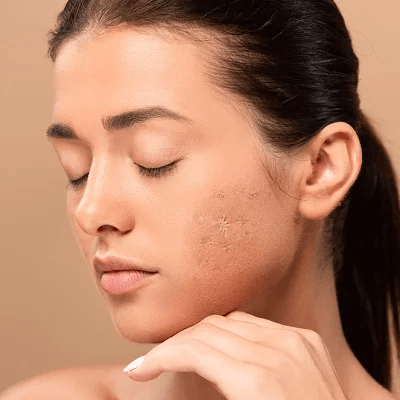Erase Acne Scars Top Treatments That Work
- Laraib Naeem
- Jan 7, 2025
- 3 min read
Acne scars can be a lingering reminder of past breakouts, leaving many people searching for effective ways to erase Acne Scars Treatment(علاج ندبات حب الشباب) and restore their skin's natural beauty. While it's difficult to completely eliminate scarring, there are numerous treatments that can significantly reduce their appearance and help you achieve smoother, clearer skin. In this article, we’ll explore the most popular and effective acne scar treatments that work, ranging from at-home remedies to professional interventions.
Understanding Acne Scars:
Before diving into treatments, it's important to understand the different types of acne scars. Acne scars form when the skin experiences an inflammatory response to breakouts. The two most common types of scars are atrophic scars (sunken scars) and hypertrophic scars (raised scars). Atrophic scars include ice pick scars, boxcar scars, and rolling scars, while hypertrophic scars are raised and appear when excess collagen is produced during the healing process. Understanding your scar type will help guide you toward the most effective treatment options.

Top at-Home Treatments for Acne Scars:
For those looking for more accessible, budget-friendly options, several at-home treatments can help fade acne scars over time. One of the most popular ingredients is retinol, which accelerates cell turnover and helps fade dark spots and textured scars. Retinol is available in over-the-counter creams and serums, but stronger versions may require a prescription. Vitamin C is another powerhouse ingredient that brightens skin and reduces hyperpigmentation associated with scars. Regular use of vitamin C serums can even out skin tone and improve the overall appearance of scars.
Additionally, chemical exfoliants like AHAs (alpha hydroxy acids) and BHAs (beta hydroxy acids) can help by sloughing off dead skin cells, encouraging new skin growth and minimizing scar tissue. Daily sunscreen use is also crucial, as it prevents scars from becoming darker when exposed to UV rays.
Professional Treatments for Acne Scars:
If you’re seeking more dramatic results, professional treatments offer faster and more noticeable improvements. Laser therapy is one of the most effective treatments for acne scars. Fractional CO2 lasers, for example, target the deeper layers of the skin to stimulate collagen production and improve skin texture. These treatments may require multiple sessions but can lead to significant improvements in scar reduction.
Another popular option is microneedling, which involves using tiny needles to create controlled micro-injuries in the skin, prompting the skin’s healing response. Microneedling can help flatten raised scars and improve skin texture. It's especially effective for atrophic scars and is often combined with PRP (platelet-rich plasma) to boost collagen production and accelerate healing.
Chemical Peels for Acne Scars:
For those with mild to moderate scarring, chemical peels can be a great treatment. Chemical peels use acid solutions to exfoliate the skin, removing damaged skin layers and promoting new, healthier skin growth. Glycolic acid peels and salicylic acid peels are particularly effective for treating acne scars, as they help reduce pigmentation and improve skin texture. Peels can be done in-office or with at-home products, but stronger peels are typically recommended by dermatologists for optimal results.
Fillers and Subcision for Depressed Acne Scars:
For those dealing with deeper, more indented acne scars, dermal fillers can be a highly effective option. Fillers, such as hyaluronic acid-based ones, are injected into the skin to lift and smooth out depressed scars. Results are often immediate and can last for several months. In combination with fillers, subcision is a technique where a needle is used to break up scar tissue underneath the skin, helping to lift indented scars and improve overall skin texture.
Prevention and Aftercare Tips for Acne Scars:
While treatments can go a long way in improving the appearance of Acne Scars Treatment(علاج ندبات حب الشباب), preventing new scars from forming is equally important. The best way to avoid scarring is to avoid picking or squeezing pimples. Applying topical treatments like benzoyl peroxide or salicylic acid can help treat active acne and prevent future breakouts. Consistent sun protection is also crucial, as UV exposure can worsen scars and delay the healing process. By maintaining a solid skincare routine and following proper aftercare recommendations after treatments, you can maximize results and keep your skin looking clear and smooth.
In conclusion, while it's difficult to completely erase acne scars, a combination of at-home treatments, professional procedures, and diligent skincare can make a noticeable difference. Whether you're dealing with mild marks or more severe scars, there are various options available to help you achieve the smooth, even skin you desire.



Comments